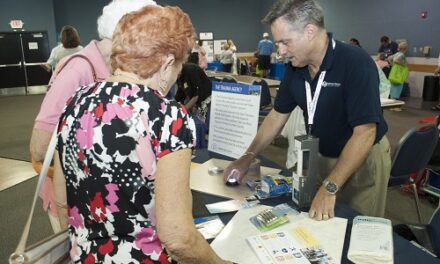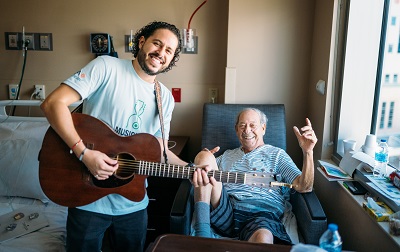When the Memorial Cancer Institute established its Bone Marrow Transplant (BMT) Program at Memorial Hospital West less than one year ago, many local patients in need of transplant were given the opportunity to get the specialized treatment they needed close to home on an outpatient basis.
The Memorial BMT Program performs autologous transplants, in which patients with specific cancers of the blood and lymph nodes are rescued by their own blood stem cells after the administration of high dose chemotherapy to eradicate their disease. Autologous transplant is considered a standard of care for multiple myeloma and relapsed diffuse large B cell Non-Hodgkins and Hodgkins lymphoma.

The Memorial Cancer Institutes Bone Marrow Transplant team includes (l-r) Maria Lopez-Bover, clinical manager of the Leukemia Lymphoma and BMT Program; Rene Villanueva, Pharmacist; and Dr. Lyle Feinstein, Director.
The Memorial Cancer Institute has a formally trained BMT team, which includes physicians as well as a clinical manager, pharmacist, nurse practitioner, dedicated nurses, dietician and social worker. The team meets weekly to discuss potential transplant candidates and the status of patients who are currently undergoing transplant.
Patients are evaluated daily during the month-long transplant process, with meticulous attention given to infection control, symptom management, patient education, and emotional support. While transplant patients are managed in a specialized outpatient facility, a designated inpatient unit was developed at Memorial Hospital West for patients who require hospitalization.

Dr. Lyle Feinstein greets Raphael “George” Watkins, the first patient in the Memorial Cancer Institutes Bone Marrow Transplant.
“To date, patient outcomes have been extremely positive. We have been able to safely and successfully treat patients without the burden of uprooting them and their families to travel outside of the county for such highly specialized care,” explained Dr. Lyle Feinstein, Director of the BMT Program. “In fact, patients who have completed transplant are so enthusiastic with the results that they are now coaching new patients through the process.”
Upon recovery, transplanted patients are returned to the care of the referring oncologist. Patients return to the BMT Program for follow-up at three months and one year post-transplant.
Many patients consider their transplant date a second birthday. “We hope to be celebrating many more birthdays with these patients in the future,” said Dr. Feinstein.
Post Views: 1,048





























